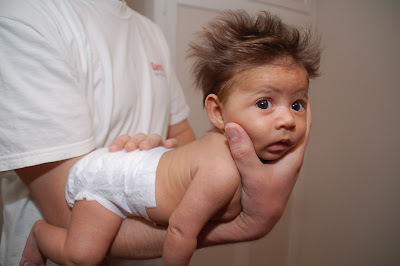Before you allow the government to convince you to inject your children (or yourself) with toxins such as formaldehyde and aluminum,
.
Currently the CDC oversees vaccine research, safety and promotion, a situation that has been drawing more and more public criticism in recent years. The CDC compiles the list of vaccines that doctors are to give all children in the US, based on the recommendations of an advisory panel, and in many states kids can not attend day care or public schools unless they have received the CDC-endorsed vaccines.
A recommendation by the CDC guarantees a huge market for a vaccine and enables the drug company to use the government as a marketing device for its product. The annual global market for vaccines is expected to be over $10 billion this year.
On July 21, 2003, United Press International published a report based on a four-month investigation that found a pattern of problems linked to vaccines recommended by the CDC, as well as a web of close ties between the agency's advisory panel and the pharmaceutical industry.
By investigating members of an advisory panel of outside experts that make vaccine recommendations, UPI found that members of the panel received money from vaccine makers through relationships that included: sharing a vaccine patent; owning stock in a vaccine company; payments for research; money to monitor vaccine testing; and funding for academic departments. In fact, according to UPI, the CDC itself is in the vaccine business.
Under a 1980 law, UPI found the CDC had 28 licensing agreements with drug companies and one university for vaccines or vaccine-related products and eight ongoing projects to collaborate on new vaccines. For instance, the CDC and SmithKline Beecham worked together on the Lyme-disease vaccine. A 1992 CDC activity report, obtained by UPI, says the agency had an agreement "with SmithKline Beecham that currently funds three positions at (the CDC) for the purpose of providing information of use in developing advanced test methods and vaccine candidates."
In June 2001, the General Accounting Office delivered a report on the issue to Senator Chris Dodd, (D-Conn), that noted that CDC employees "are listed on two Lyme-disease related patents" including "a 1993 joint patent between CDC and SmithKline Beecham Corporation." The report also said that six of 12 consultants working for the CDC on Lyme vaccines "reported at least one interest related to a vaccine firm." According to CDC meeting transcripts where the committee weighed its recommendation, 3 had conflicts of interest with SmithKlineBeecham.
The LYMERIX lyme-disease vaccine was approved by the CDC on February 18, 1999, and by October of 2000, more than 1.4 million people had received the vaccine. But 18 months later, according to UPI, in February 2002, SmithKline Beecham pulled the vaccine off the market claiming that sales of LYMERIX were insufficient to justify the continued investment. However, according to UPI, the company also faced hundreds of lawsuits by people who said they suffered side effects from the vaccines.
The government's database at the time, listed possible side effects from LYMERIX as 640 emergency room visits, 34 life-threatening reactions, 77 hospitalizations, 198 disabilities and six deaths after people took the shots since the CDC endorsed it, according to UPI.UPI also found other cases where vaccines endorsed by the panel were pulled off the market after a number of people suffered devastating side effects, and some died.
An August 2001 report on the investigation by Rep Dan Burton's (R-Ind) House Government Reform Committee, stated that "four out of eight CDC advisory committee members who voted to approve guidelines for the rotavirus vaccine in June 1998 had financial ties to pharmaceutical companies that were developing different versions of the vaccine."
Critics say the conflicts of interest of Dr. Paul Offit while sitting on the advisory panel could not be more blatant. He was part of the team that mandated the use of the RotaVirus vaccine, even though he received a $350,000 grant from Merck to develop the vaccine, shared the patent, and was paid to go around the country teaching doctors that vaccines were safe, according to the Wall Street Journal.
[It is worth noting that CNN often quotes Dr. Offit for support of the notion that vaccines are perfectly safe and that there is no connection between them and the epidemic of neurological disorders sweeping America.]
In 2001, Congressman Burton's investigation also found conflicts of interest with the then chairman of the advisory panel, Dr John Modlin, a Professor at Dartmouth Medical School, who owned $26,000 worth of Merck stock. In a phone interview in 2003, Dr Modlin told UPI that he had sold the Merck stock, but that he had recently agreed to chair a committee to oversee Merck vaccine clinical trials. "Meeting transcripts over the past decade," UPI says, "showed that at some meetings, half of the members present had potential conflicts with vaccine manufacturers."
For instance, at a June 2002 meeting, four of the 11 members on the panel acknowledged conflicts with Wyeth, GlaxoSmithKline, Merck, Pfizer, Aventis Pasteur, and Bayer. Two of the four conducted research or vaccine trials and one member was a co-holder of a patent.The agency is currently facing a major credibility crisis over the issue of whether vaccines containing the mercury-based preservative, thimerosal, are responsible for the epidemic of neurological disorders ranging from ADHD to autism in children all across the country.


















